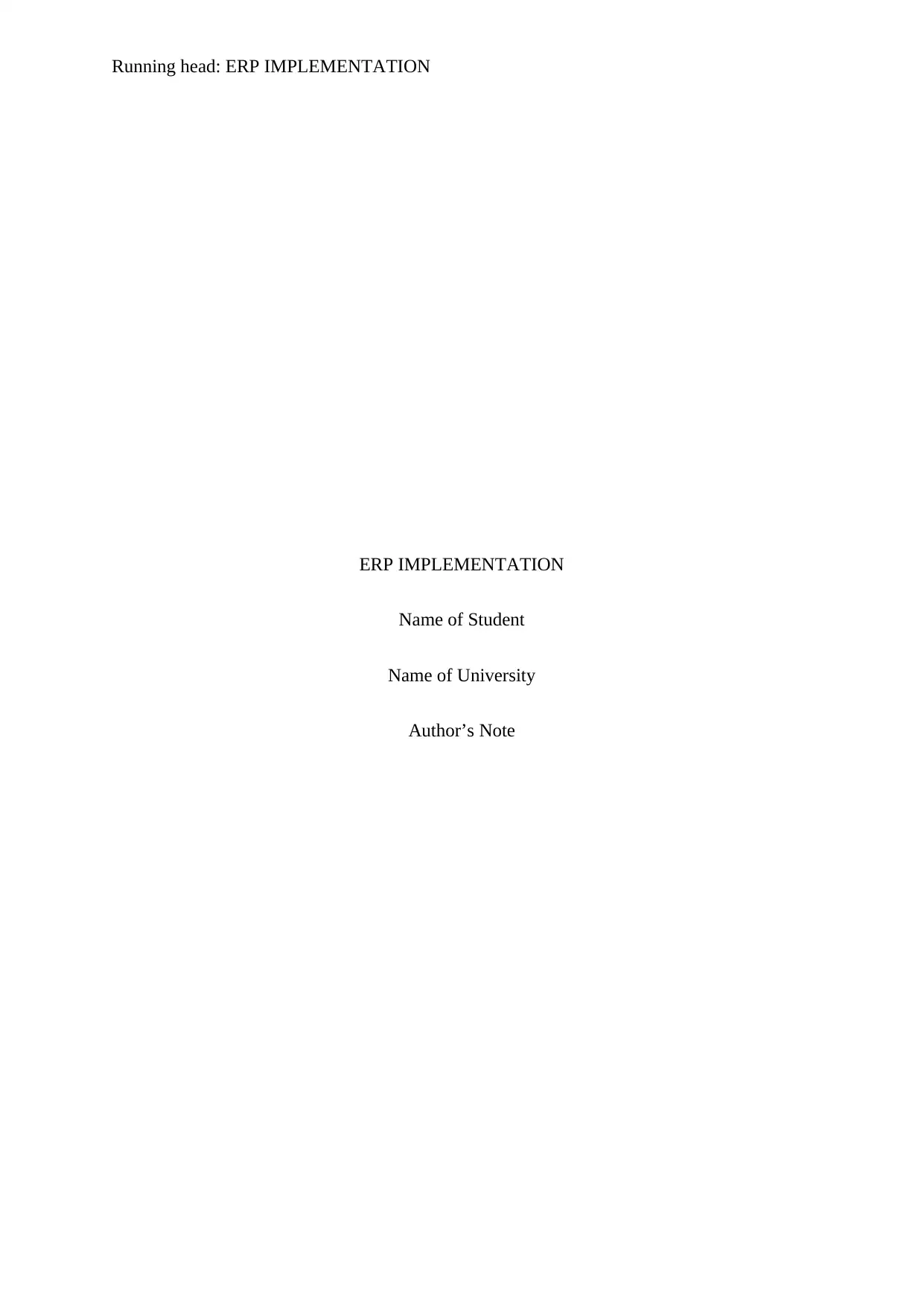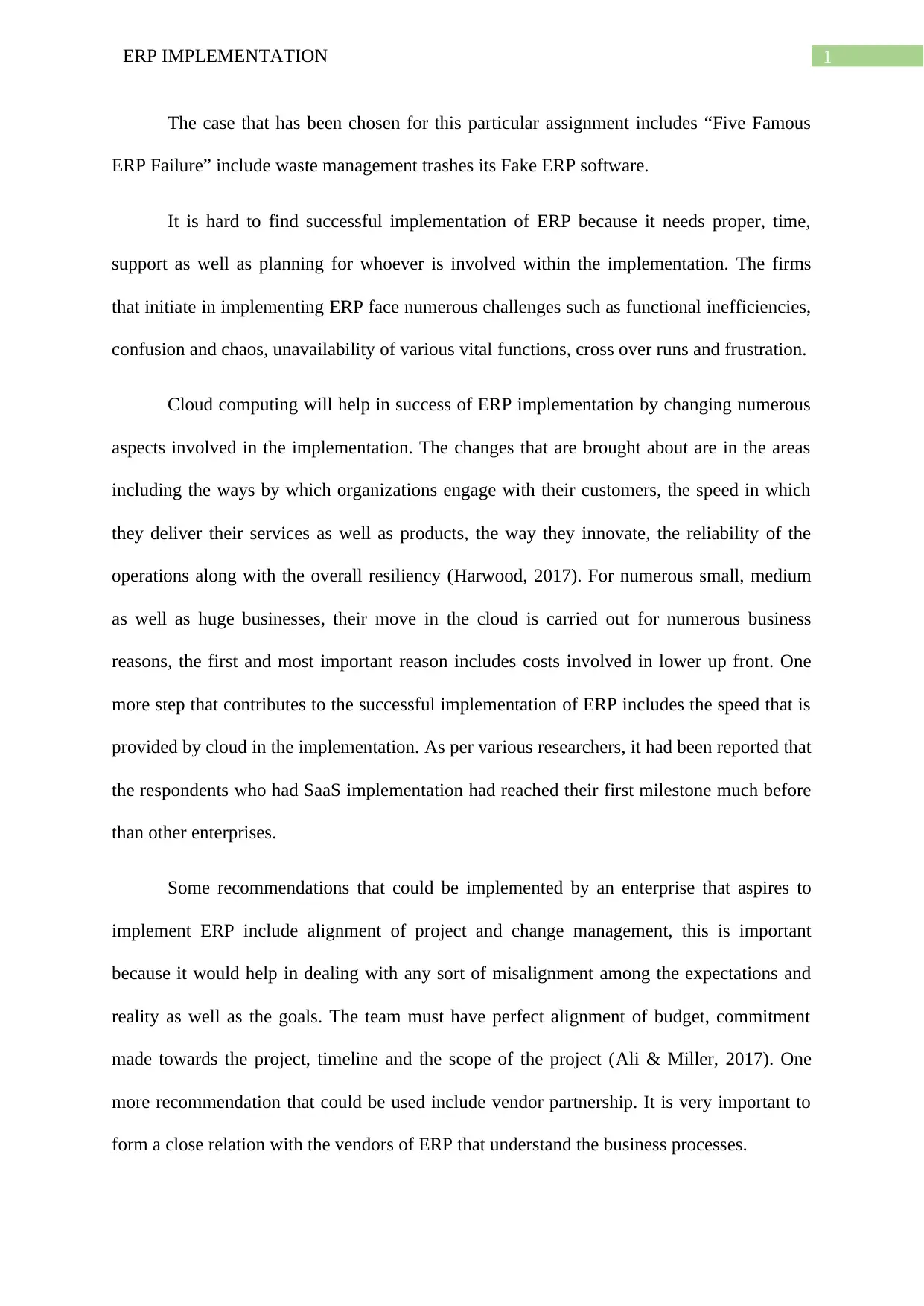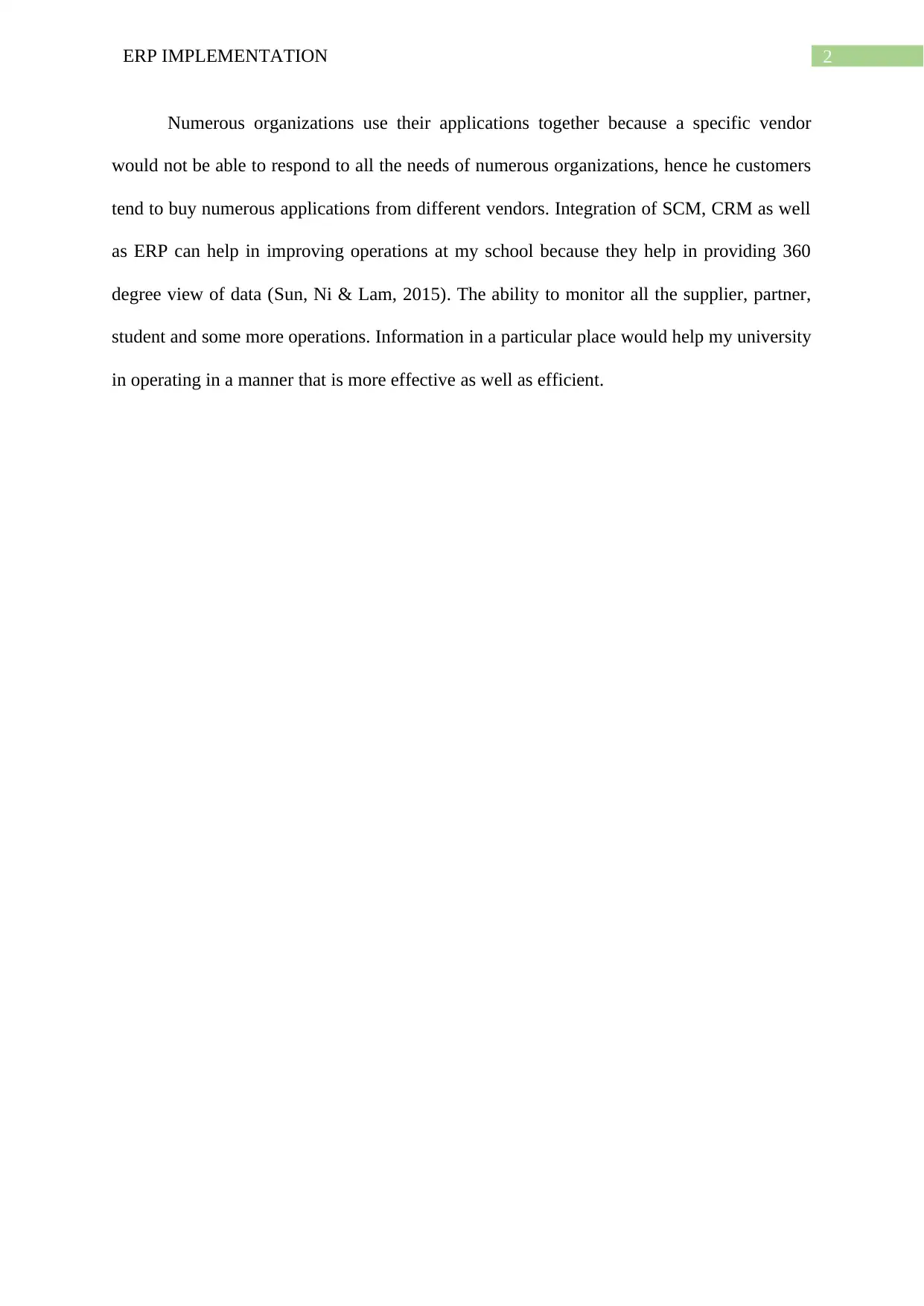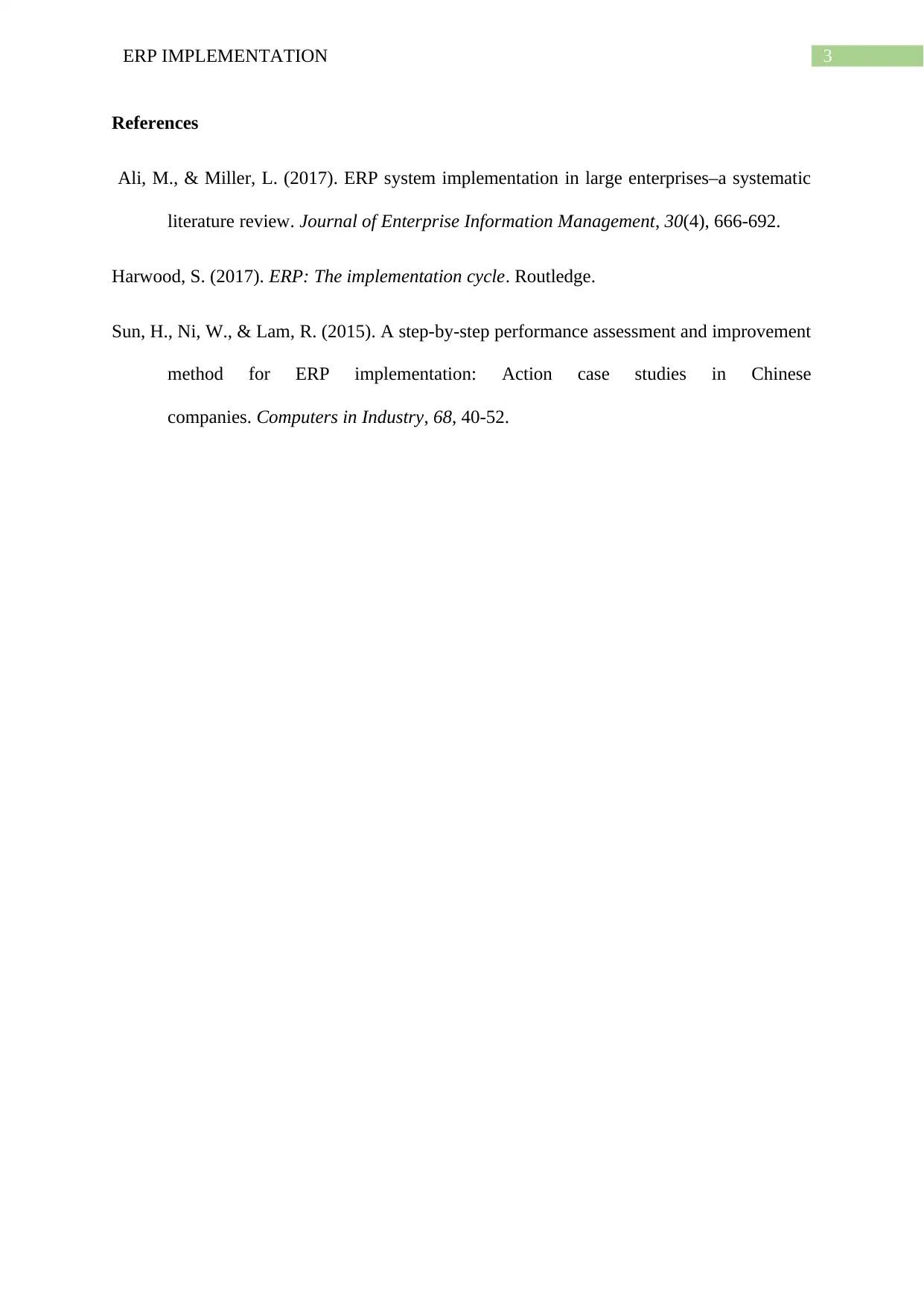ERP Implementation Report: Challenges, Solutions, and Case Study
VerifiedAdded on 2022/11/18
|4
|583
|328
Report
AI Summary
This report examines the challenges and solutions associated with Enterprise Resource Planning (ERP) implementation. It begins by highlighting the difficulties faced by organizations during ERP implementations, such as functional inefficiencies and the need for careful planning. The report emphasizes the role of cloud computing in facilitating successful ERP implementations, including improved operational efficiency and scalability. The document also provides recommendations, such as aligning project and change management, and establishing strong vendor partnerships. The report underscores the importance of integrating various systems, like Supply Chain Management (SCM), Customer Relationship Management (CRM), and ERP to provide a comprehensive view of data. By integrating these systems, the report suggests that educational institutions can operate more effectively and efficiently. The report draws on references from various sources to support its findings.
1 out of 4











![[object Object]](/_next/static/media/star-bottom.7253800d.svg)